Search Results
Showing results 1 to 20 of 37
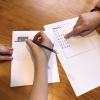
Squeezing Pictures Into Codes
Source Institutions
In this activity, learners will explore how computers represent pictures using pixels.
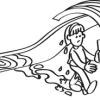
Programming Languages: Marching Orders
Source Institutions
In this activity about computer programming, learners follow instructions in a variety of ways in order to successfully draw figures.
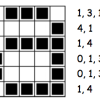
Colour by Numbers: Image Representation
Source Institutions
This activity shows learners how computers use numbers to represent pictures. A grid is used to represent the pixels (short for picture elements) of a computer screen.
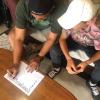
Guess the Sentence
Source Institutions
In this activity, learners play a game similar to Hangman by guessing a secret phrase to understand how computer scientists measure the amount of "information" in a document.

Find My Card
Source Institutions
In this activity, learners find the answer to the question, "if you have a pile of 8 cards, and you remove half, then half again, how many times can you do this until you get to just one card?" This w

Mind-Reading Magic
Source Institutions
In this activity, learners recreate a method of detecting and correcting errors in computers called 'parity'.
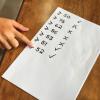
Guess My Number
Source Institutions
In this game, learners experience how computers divide a big problem into many smaller ones and how they use binary "yes"/"no" questions.

Battleships: Searching Algorithms
Source Institutions
This activity explores the main algorithms that are used as the basis for searching on computers, using different variations on the game of battleships.
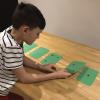
Binary Challenge
Source Institutions
In this activity, learners cut out 5 paper cards and label them with 1, 2, 4, 8, or 16 dot(s) to explore binary digits.
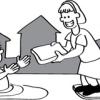
The Muddy City: Minimal Spanning Trees
Source Institutions
In this puzzle, learners investigate the decisions involved in linking a network between houses in a muddy city.
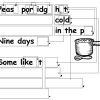
You Can Say That Again!: Text Compression
Source Institutions
This activity helps students learn how computers "compress" text by identifying repeating patterns of letters, words, and phrases.
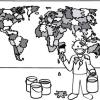
The Poor Cartographer: Graph Coloring
Source Institutions
In this activity, learners help a poor cartographer color in the countries on a map, making sure each country is colored a different color than any of its neighbors.
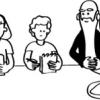
Information Hiding: Sharing Secrets
Source Institutions
This activity about cryptographic techniques illustrates a situation where information is shared, and yet none of it is revealed.
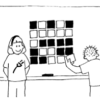
Card Flip Magic: Error Detection & Correction
Source Institutions
This magic trick is based on how computers detect and correct data errors.
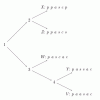
Phylogenetics
Source Institutions
This activity lets learners participate in the process of reconstructing a phylogenetic tree and introduces them to several core bioinformatics concepts, particularly in relation to evolution.
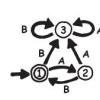
Treasure Hunt: Finite-State Automata
In this computer science activity about finite-state automaton (on page 45 of the PDF), learners use a map and choose various pathways to find Treasure Island.
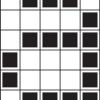
Color by Numbers: Image Representation
Source Institutions
Computers store drawings, photographs, and other pictures using only numbers. Through this activity, learners decode numbers to create pictures using the same process that computers use.
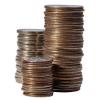
How Much is a Name Worth?
Source Institutions
In this math lesson, learners use simple addition facts to compute values (in dollars and cents) for their names.
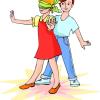
Program a Friend
Source Institutions
In this activity (on page 2), one person "programs" the other like a robot to move through a space, trying to get them to avoid obstacles and reach a goal.
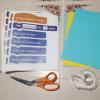
Program Your Morning
Source Institutions
In this activity, learners will explore coding by arranging words and phrases to create an order of operations in this low tech version of computer programming.
